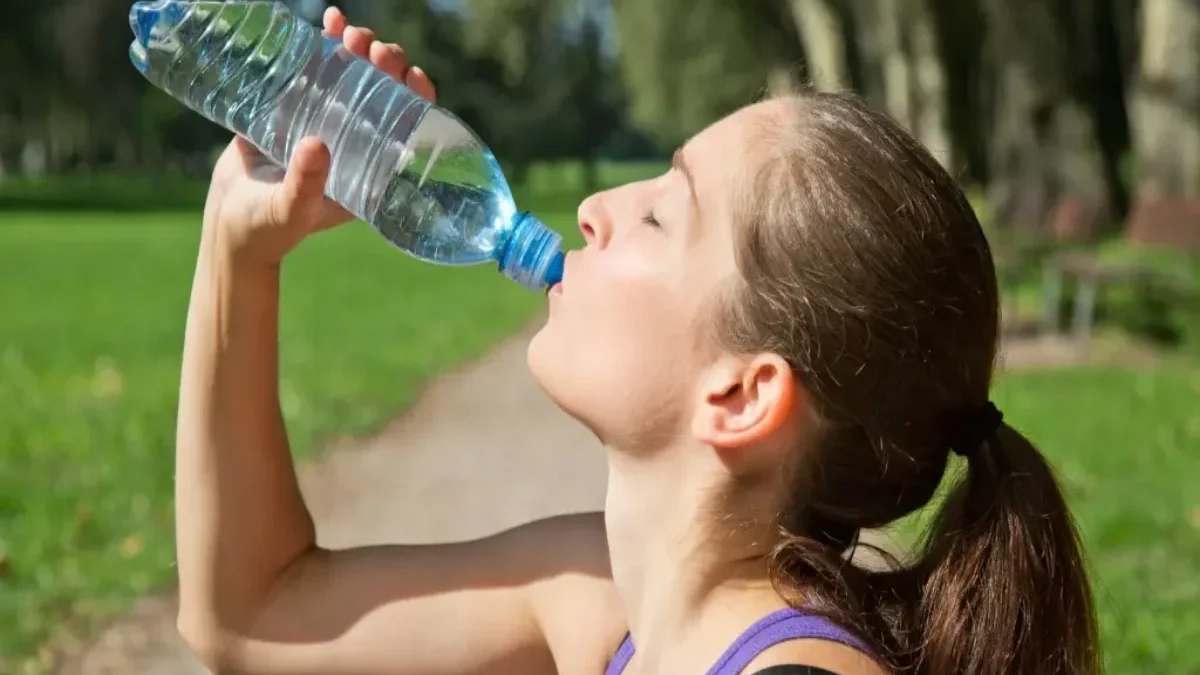Table of Contents
Introduction
Hydration – the body’s amount of water to maintain skin temperature and moisture in excellent condition is hydration. It is possible to remove catabolic waste from cells and excess body heat through hydration.
It also helps the formation and proportion of faeces and the exchange of gases in the alveoli.
Water, an essential substance for the existence of all known life forms, is the main component of the human body and represents between 55 and 60 per cent of the total body weight. Water performs essential functions in our body since it is the medium where body fluids dilute. It is the means of transporting nutrients to the cells. It helps digestion by cutting nutrients and regulates body temperature through evaporation through the skin. However, human beings do not have an efficient water storage mechanism, so we need a continuous supply of fluids to maintain stable levels and avoid consequences such as headaches, tiredness, weakness, etc.2>
The importance of Good Hydration
An essential component for the human body at any stage of life – A glass of water. – 2 to 3 litres of water per day.
Health. Digestion. Water is essential for the human body at any stage of life because it helps regulate body temperature, keeps skin hydrated and elastic, lubricates joints and organs, and maintains good health.
The health sector highlights that one of the adverse consequences of inadequate water intake is dehydration, whose symptoms depend on the degree of water deficiency. It presents dizziness, headache, weakness and fatigue, dry mouth, and lack of appetite.
In sedentary or moderately active people and under normal temperature conditions, the body loses water through urine, faeces, breathing, and sweating. With increasing physical activity and in conditions of different temperatures, sweat contributes to the loss of body water.
For this motive, drink 2 to 3 litres of water daily, although needs may vary according to age, sex, diet, and type of physical activity.
The water necessary to meet daily requirements comes from the food and drinks ingested and produced by the metabolism. Hence, we must consider drinking at least 2 litres of water every day as part of our habits.
Recommendations
- Drink at least 2.5 litres of fluid a day. This amount increases if you exercise or if it is boiling.
- Try to drink before you feel thirsty. Only when the body loses 1 per cent of fluids does thirst appear; if the loss is 2 per cent, performance and endurance reduce, and from 5 per cent, rapid heart rate, apathy, vomiting, and muscle spasms can occur.
- Try to always carry a bottle of water with you. It is also convenient to drink water frequently instead of other drinks (soft drinks, coffee, milkshakes) at work.
- Do not substitute caffeinated or alcoholic beverages for water. Both substances act as diuretics and can cause water loss by increasing the urge to urinate.
- It is taken into account why the elderly and children are the most vulnerable to dehydration. However, superior attention to pregnant women and athletes, whose more significant water needs.
- With age, the thirst mechanism deteriorates. Older people do not feel the need to drink and can become dehydrated significantly, forcing them to drink liquids even when they are not thirsty. In many cases, the elderly do not consume enough beverages for fear of urinary incontinence or going to the bathroom when they are away from home.
- Make sure your children drink enough water to make up for the water losses associated with their activity. Also, keep in mind that drinking water versus soda can help prevent the problem of childhood obesity.
- Remember that both the flu and colds often cause dehydration. In this case, you should increase your water supply, and if forced to stay in bed, keep a bottle of water handy.
- Start and end your day by drinking water. The body loses water while you sleep, so you should drink water before and when you wake up.
More Risk of Dehydration
The risk of dehydration is more significant in children than in adults,
Keep in mind that mild dehydration (1-2% of body weight) harms your child’s tolerance for exertion and performance and her cognitive functions. For this reason, experts recommend carrying a bottle of mineral water in the child’s backpack and reminding him that he has to drink small sips of water throughout the day, to maintain proper hydration.
Disadvantages of Poor Hydration
When the body does not stay hydrated, various deficits and problems arise in the body, such as:
- Incrise of cardiac frecuency.
- Fainting and dizziness.
- Increased blood viscosity.
- Sudden death.
- Decreased plasma mass.
- Obstacle.
- Reduced blood flow to the muscles and brain.
- Change in the colour of urine, which becomes very yellowish.
- Increased concentration of red blood cells.
Benefits of Adequate Hydration

Maintaining adequate hydration throughout the year is vital for a healthy body and mind. More than semi of the body of water, so it is essential to drink the required amount for an excellent physical and mental routine. Water is the universal solvent that allows many vital chemical reactions in the human body and maintains bodily functions at optimal levels. Drinking plenty of liquids helps the body eliminate toxins and waste to achieve body balance. It is also necessary to drink plenty of water to avoid fatigue from work and gruelling hours in the gym.
Proper Hydration Provides Multiple Benefits.
- Regulates body temperature
- Prevents cardiovascular diseases
- It contains the appearance of kidney stones
- Reduces the risk of cancer
- Improves digestion and prevents constipation
- Increases energy and improves physical capacity
- It Helps keep skin blemish-free.
It regards the liquid to drink, Melina Fuentes, a child nutritionist.
As for natural juices, the professional recommends consuming the whole fruit because when crushing it, control of the quantities is lost. In addition, most are sweetened with sugar, multiplying the number of calories ingested per glass.
The nutritionist recommends not drinking energy drinks, given the large amount of caffeine they contain and because they can cause, among other things.
Conclusion
The body needs to remain hydrated, maintain the correct water level, allow crucial chemical reactions, and transport nutrients to the organs and breathing.


